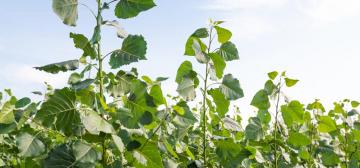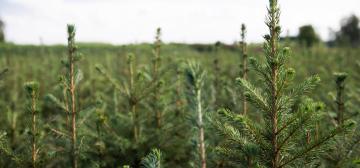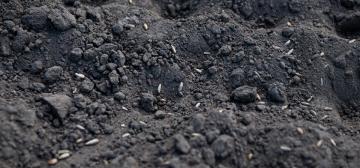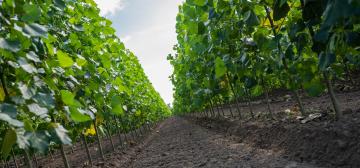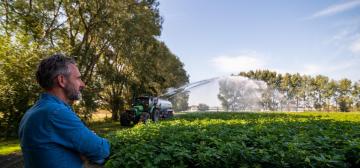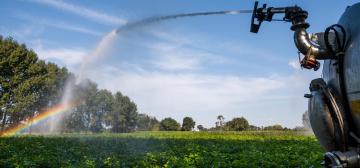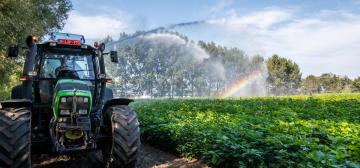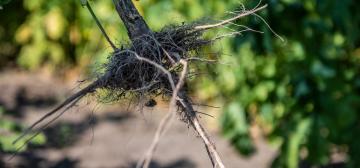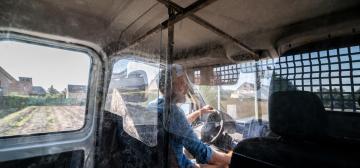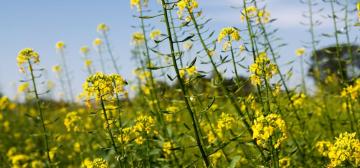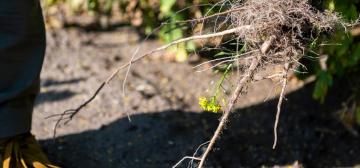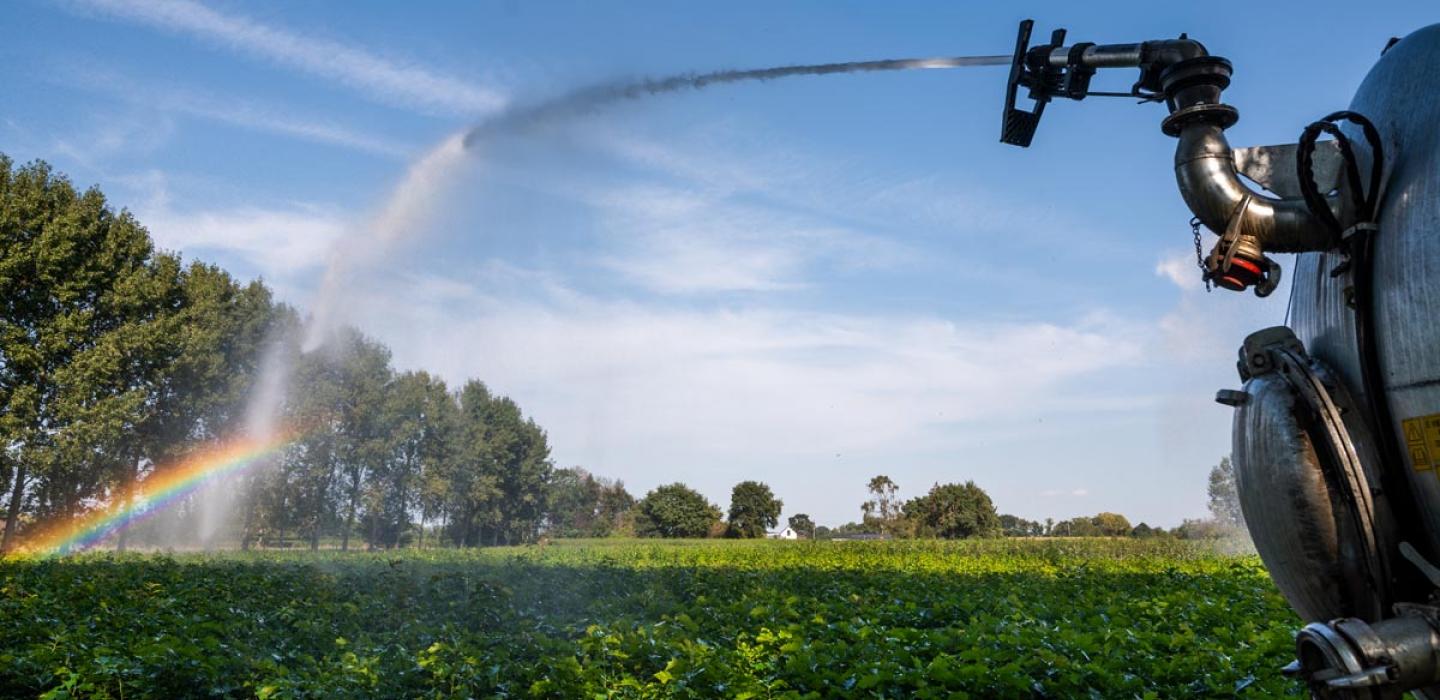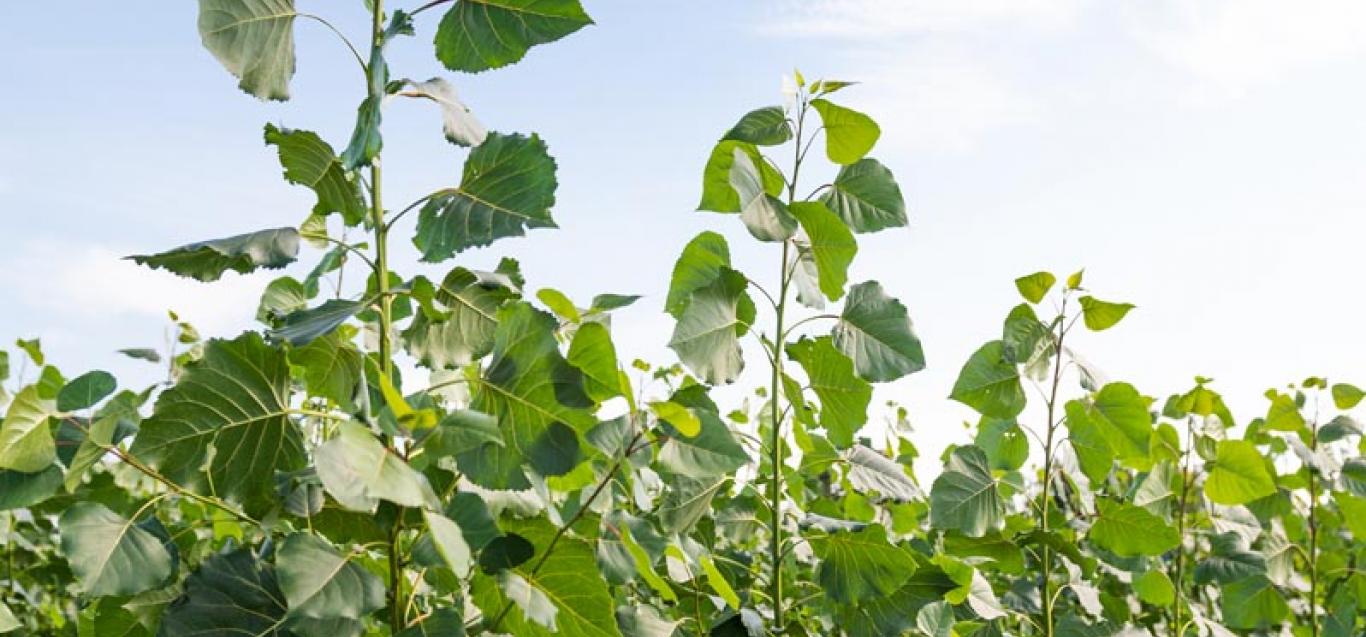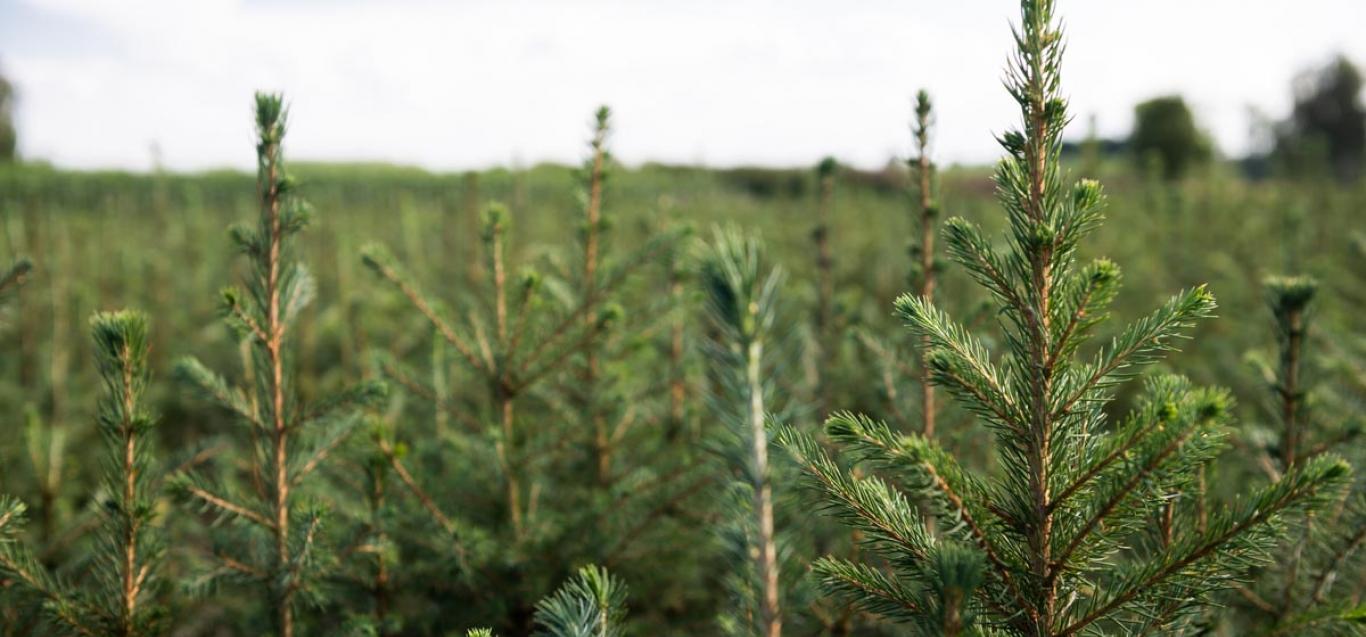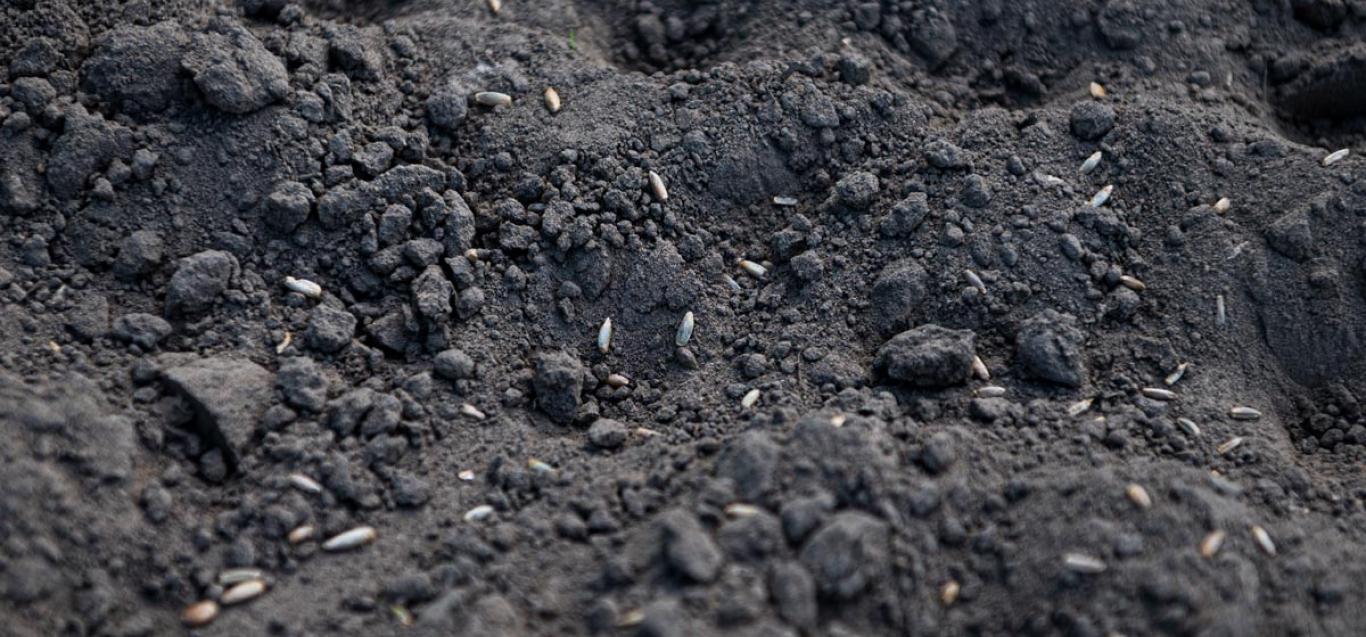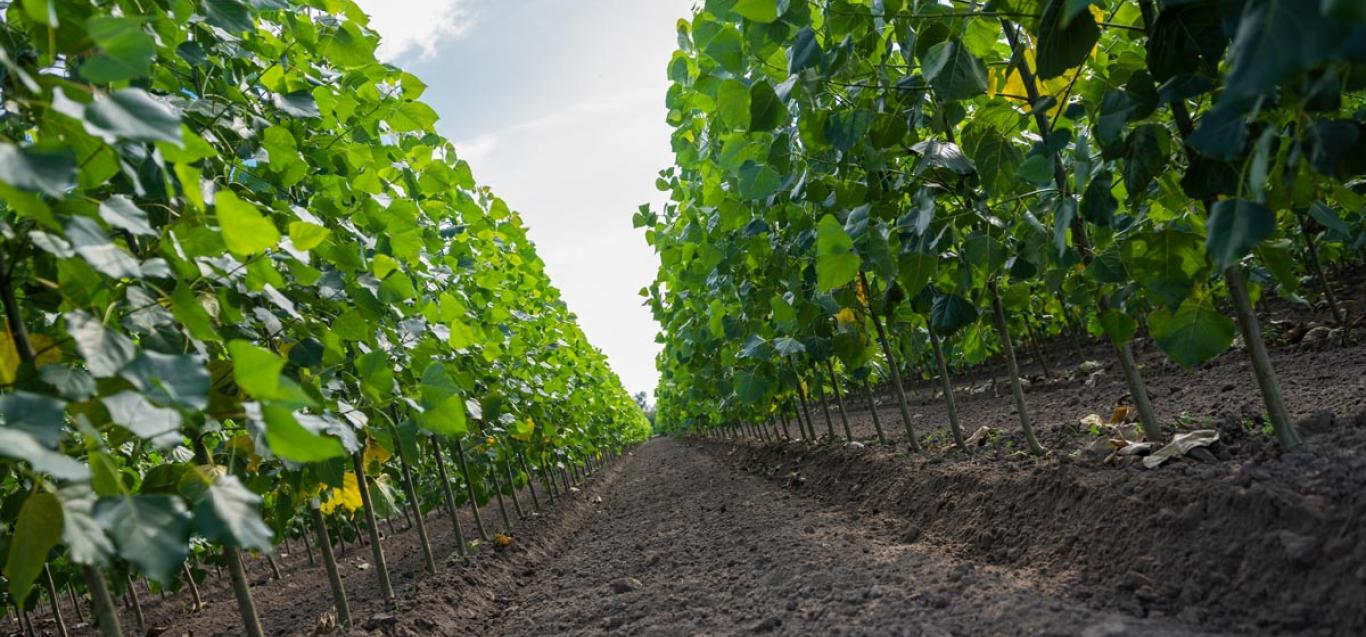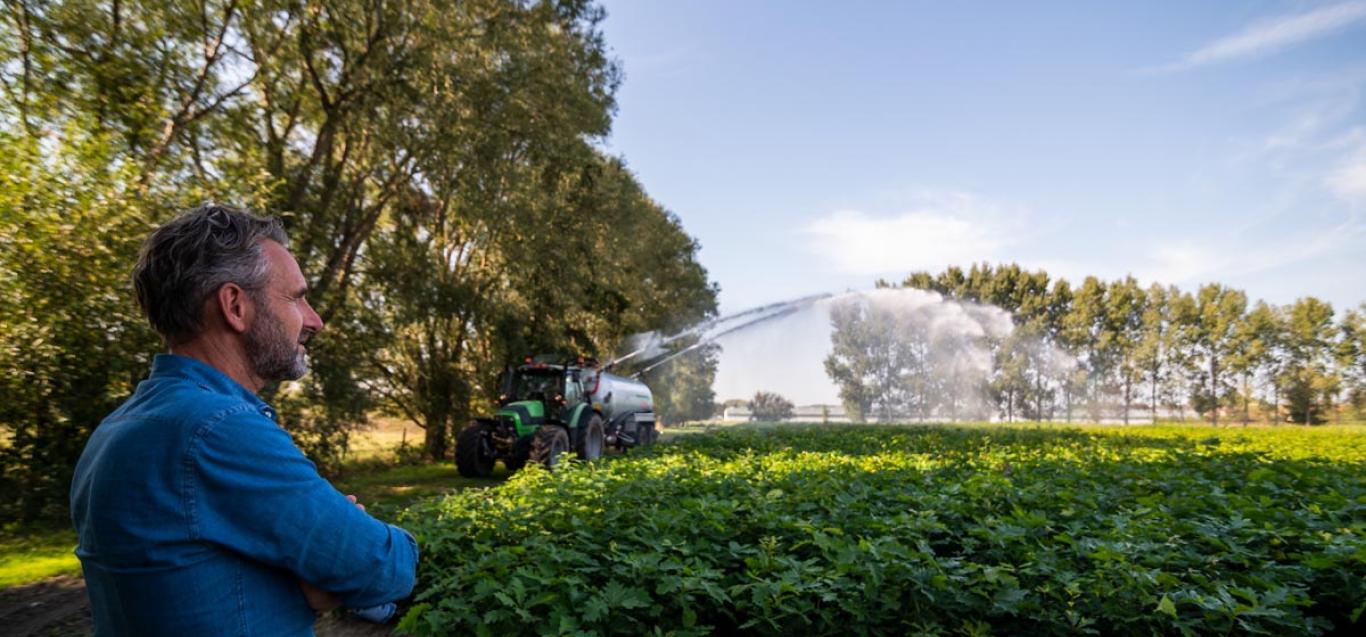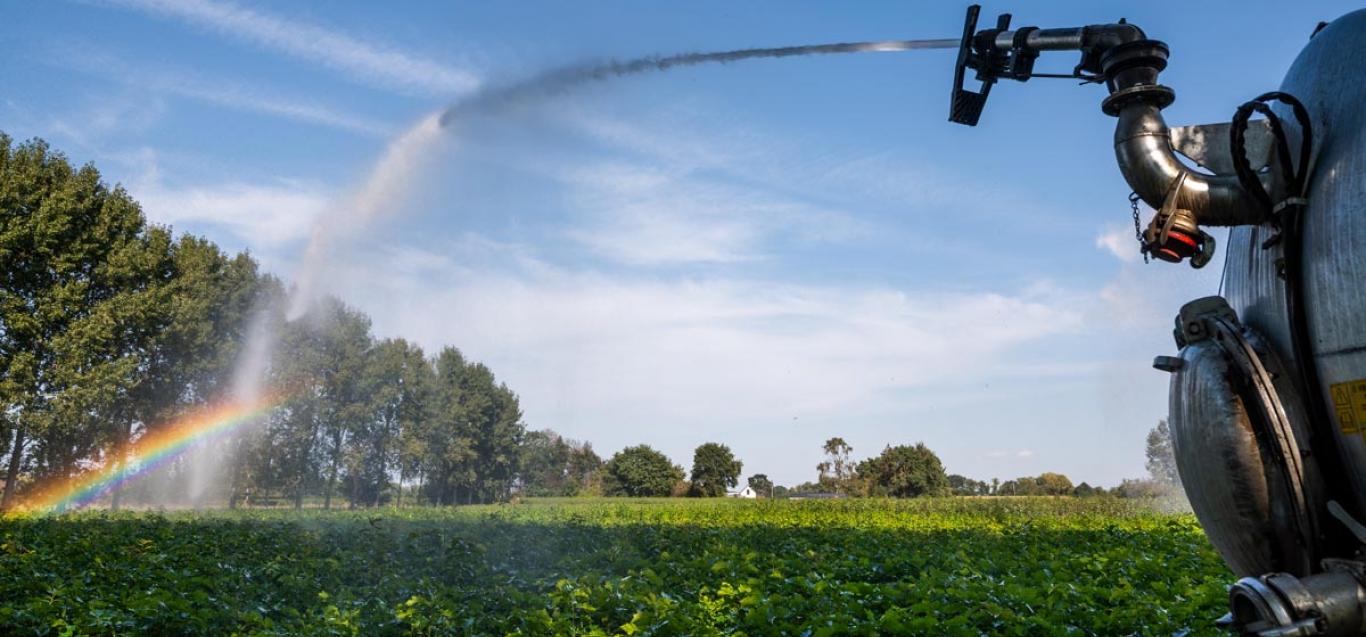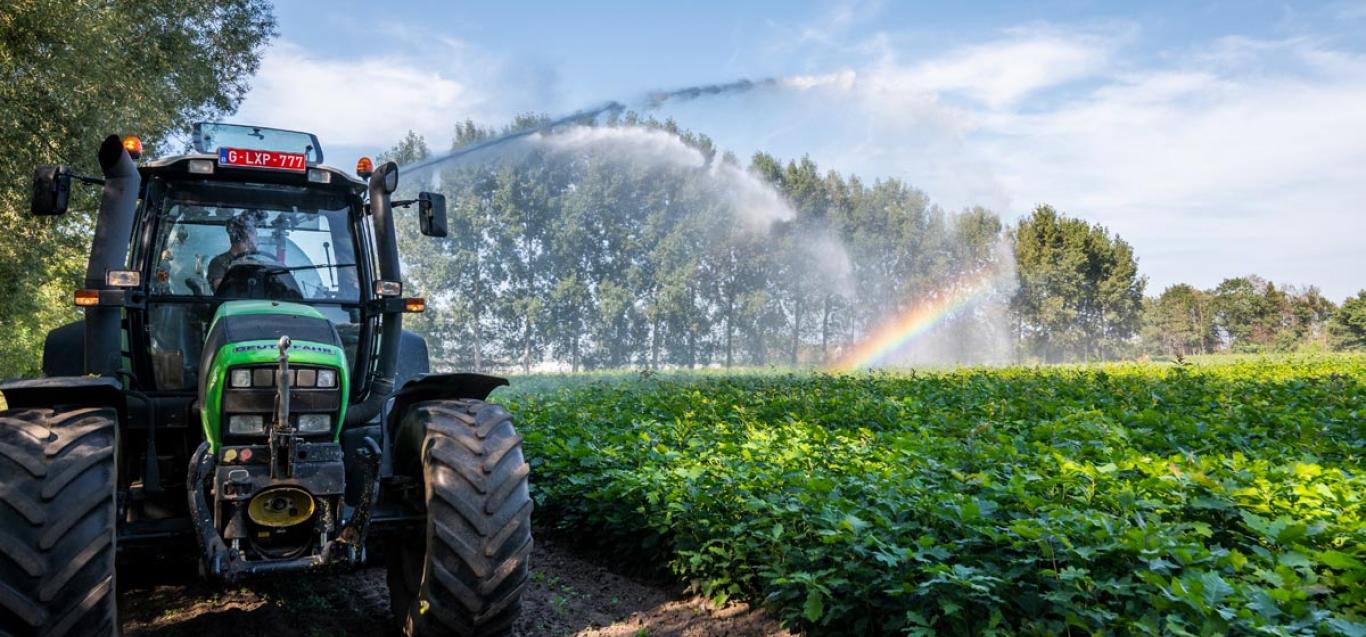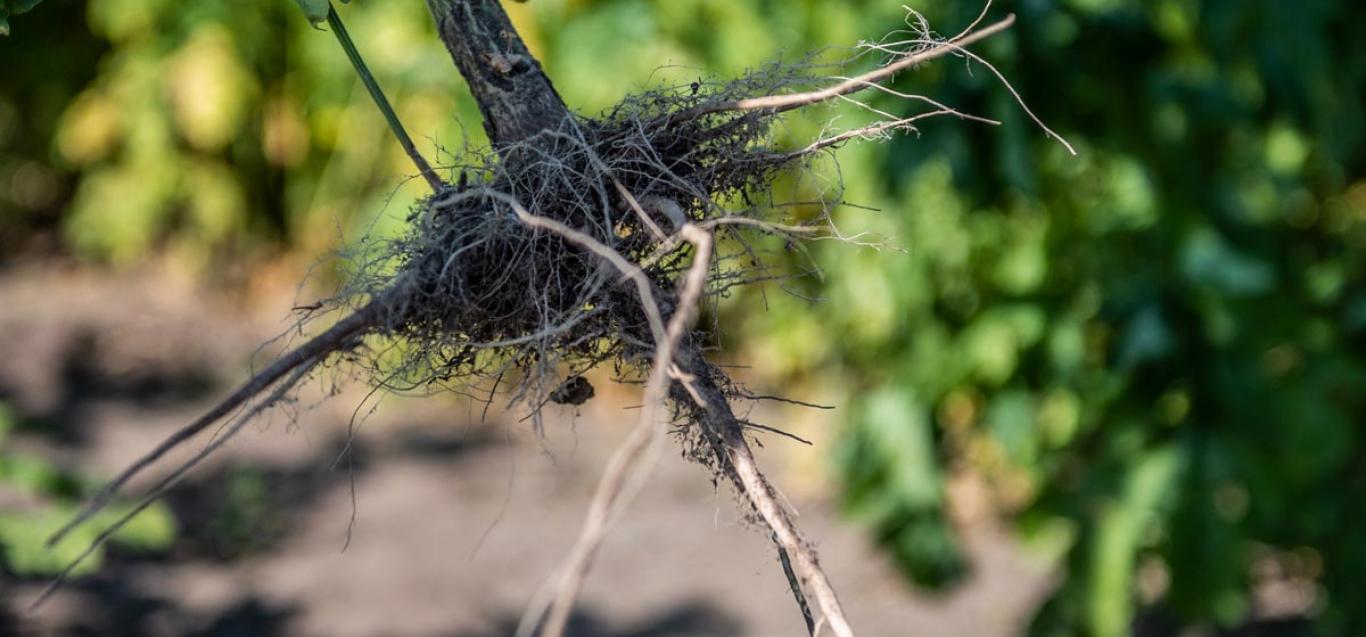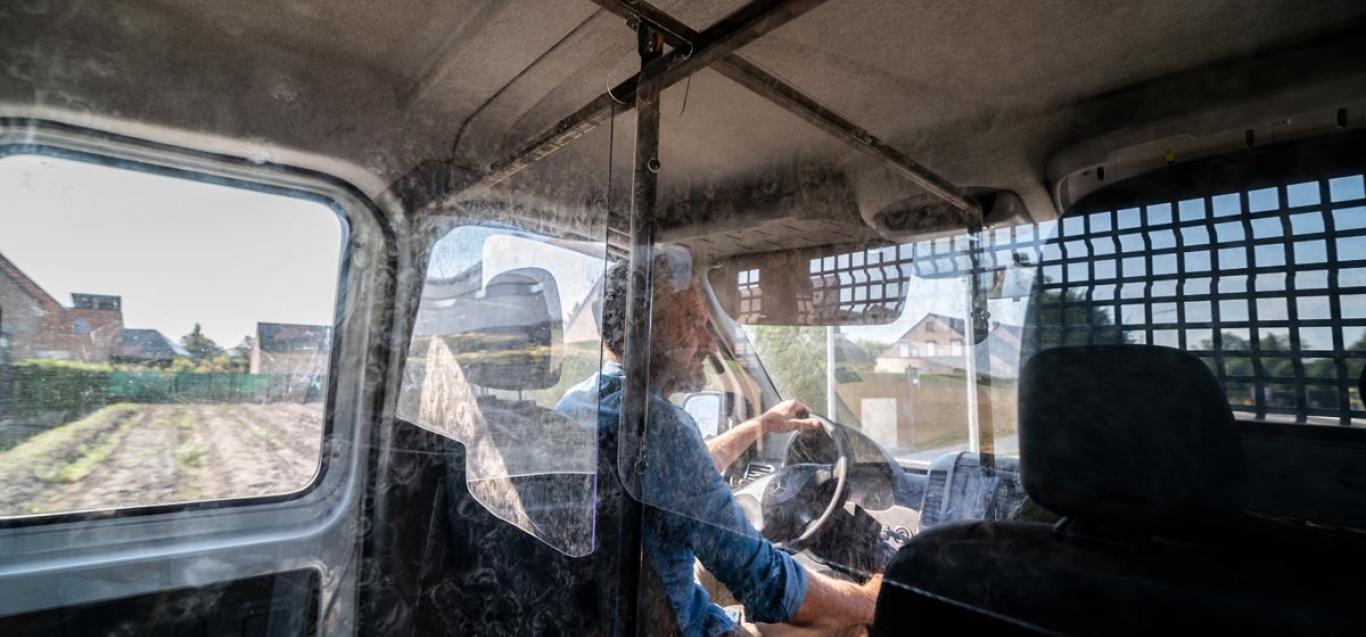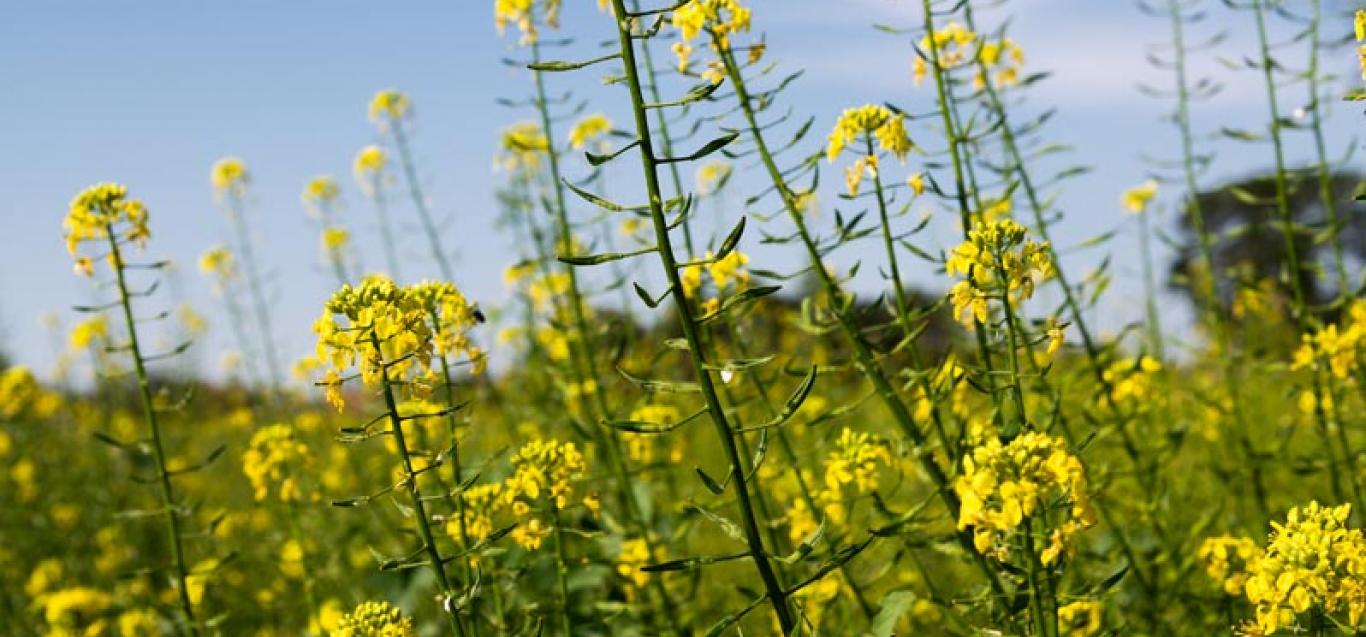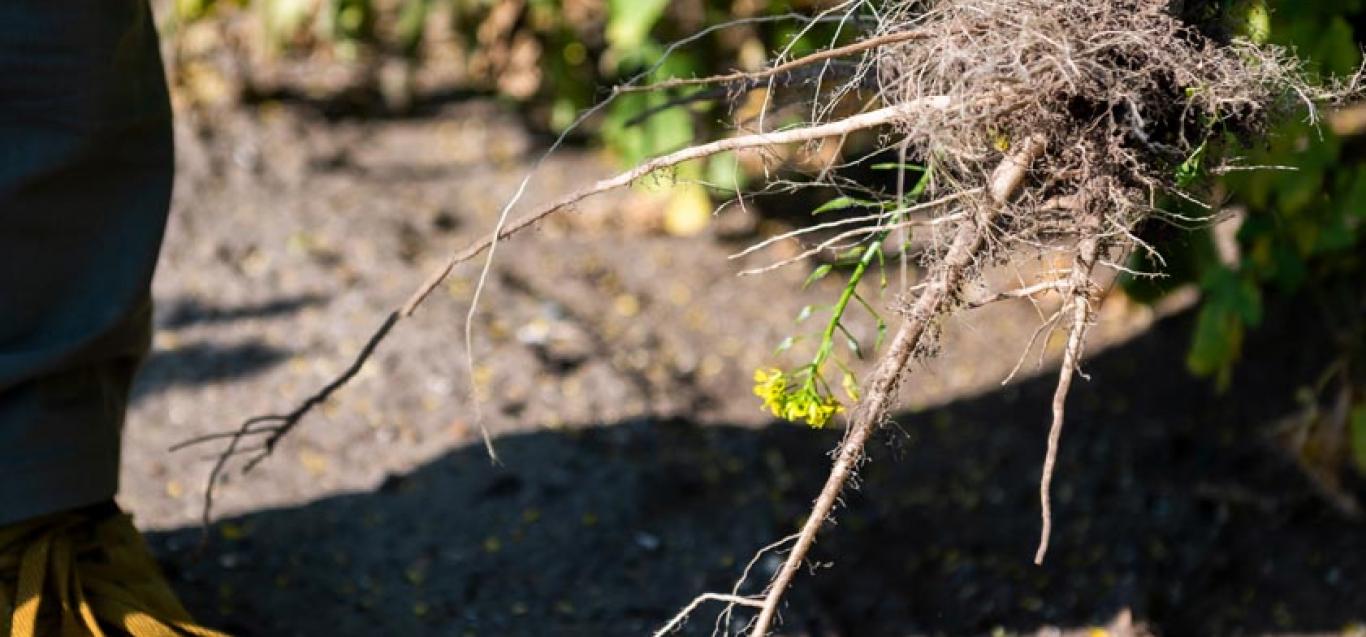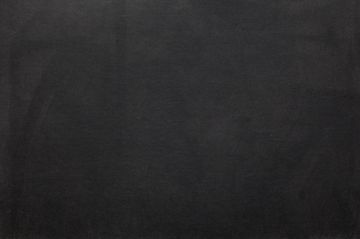Adapting to the new normal
With a history spanning almost 190 years, long-term development has always been a point on the horizon for forest-tree nursery Armand Op De Beeck bvba in Putte. To keep doing the same thing for so long, it is essential to question the certainties of the past, as sixth-generation descendant Philip Op De Beeck knows.
Writer: Ivan De Clercq, AVBS, on behalf of VLAM
In 1832, Philip’s great-great-grandfather founded the forest-tree nursery that Philip now runs. Over the years, the company has specialised in the production of forest and hedge plants, young plants with bare roots. Primarily two and three-year-old deciduous trees, but also conifers. Many trees go to the public sector for public green spaces, but also to the forestry sector. The company covers a surface area of 75 hectares and has 12 employees that are supplemented in winter up to 25 people.
80% of the production remains in Belgium: 50% goes to Wallonia, 30% to Flanders. The rest of the production goes mainly to neighbouring countries. “It’s how it developed over time, what we’re comfortable with and what we are well-equipped for in terms of logistics”, says Philip.
Moving from words to actions
Although trade fell for a while in the spring as a result of the coronavirus, all in all Philip is satisfied with sales. “The demand for forest plants is greater than the supply, and that is an evolution occurring throughout Europe. We can see that governments everywhere are moving from words to actions, effectively opting for more trees and forest.” For some varieties of trees, Op De Beeck even consciously applied the brakes to sales so that he can still serve his regular customers next year.
Although every tree nursery is happy with high demand, there is also a downside. Tree nurserymen can only deliver limited amounts since there was simply not enough seed produced of some varieties. Which has everything to do with the drought. “Trees have really suffered in the heat. Although this did lead to them producing a lot of seeds, they were not good quality. As a result, I expect far more shortages in the 2021-2022 season.”
Indigenous and Domestic
The company really focusses on certified parent material. Its range includes both forestry selections and domestic forest and hedge plants. The domestic material is made up of species that have flourished in our region for centuries (domestic), the seeds of which are harvested locally. “We wonder whether we shouldn’t be able to look a little further south for the certified material in view of the changing climate. Especially now there is a shortage of seeds.”
Level-controlled drainage
On their own fields, drought has also become a matter of importance over the past few years. “The crops that we have are traditionally harvested in winter. So, until 2017, draining water was the only thing that occupied us. But that all changed after then.” There is drainage under a large part of the fields. During construction, the choice was made to first let all the drainage water come together in a main drain (mother drain) before discharging it into the canal. The reason for this was above all practical: to avoid damage during maintenance work to the canals. “Now, it ensures that we can fairly easily convert to level-controlled drainage.”
Water supply
It means keeping more water, but also more water supply. “Until a few years ago, we almost never did that in our almost 190 years of existence. Only on very rare occasions for a number of seed beds and then we simply used mains water.”
Successive years of drought and the damage incurred as a result in 2018 meant a change in course was necessary. “We wanted to be able to react fast with irrigation and irrigate on a large scale over a short period. A well was not an option due to the lack of good water quality. So, we need to bring in water.”
Large capacity
Op De Beeck invested in a tractor with a drain-water tank with a capacity of 18,000 litres. On top of the tank there are two hose reels with which water can be sprayed 70 metres wide. It takes 10 minutes to empty or fill the tank. In consultation, a contract worker also invested in two such tanks. Two buffer vats of 45,000 litres each offer additional capacity during times of drought. The water comes from the nearby Nete canal or an old clay pit. “The water quality there is good and it’s not as cold as water from a deep well, which is better for the trees.” Last summer, one watering provided 20l/m2.
The new normal
Thanks to these substantial investments in the water supply, Philip Op De Beeck has managed to limit the damages for the company more each year. “We will still experience a wet year or cold winters at some point, but in the past few years the investments in the water supply have already offered a good return. It is the new normal, but for the time being we are well equipped for it.”
Advocating diversity
Our customers, too, are gradually opting for different species. There is more demand for plants that are better resistant to drought. For example, sessile oak does better than pedunculate oak; birches are once again becoming more popular. Slightly contrary to general opinion, poplars also seem to do very well in hot and dry conditions. “Customers also see the direction the climate is going in; the question is to what extent this will continue. It’s not our task as tree nurserymen to steer customers towards a particular species. However, we do advocate diversity. We have to move away from monoculture in forests, if only to spread the risk. Just consider the enormous damage the European spruce bark beetle can do.
Homogeneity
Diversity and working in harmony with nature is the order of the day for everyone, not least for the tree nurserymen themselves. “Compared to the past, we now work far less intensively. There is a green manure crop on a third of our land.” The main objective is to make sure the structure of the soil and the organic matter stays as good as possible. Yellow mustard, blue oat grass (Avena), sudan grass (Sorghum) and fodder radish are commonly used green manure crops. “We even like to vary our green manure crops. We can use deep-rooting green manure crops to break down any hard layers in the soil. Furthermore, we apply non-inversion tillage, drive over fixed paths and plant and sow everything by GPS. We want to make sure the soil structure stays as good as possible. Only in this way will you get homogenous batches of good quality trees with a sturdy root system.”
One of the most recent investments was a camera control on the hoe drawn by the GPS-assisted tractor. The hoe now recognises the rows itself, which makes it possible to drive faster whilst hoeing. To use crop protection products more efficiently, Op De Beeck also uses an air-assisted system during spraying. This drives the products deeper into the crop and it is possible to work closer to the edges of the plots of land without the threat of drift. Demonstration tests have already been regularly carried out at the company by research centres and authorities. “As a company, I think it’s important to commit to the sector and the environment. What’s more, it helps you question yourself and adapt where necessary. And that’s essential, even when you’re almost 190.”
Armand Op De Beeck bvba in figures
- Employees:
- 2 managers
- 2 parttime employees
- 3 occasional workers winter period
- 3 occasional workers
- 7 contractual workers
- Company surface area:
- 75 ha terrain outside
- 75 ha terrain outside
- Export: 20% of the turnover
Share of export destinations- 8% UK
- 5% The Netherlands
- 3% France
- 2% Germany
- 2% Luxembourg
- Most important export products:
- Crataegus, Fagus, Carpinus, Quercus, Ligustrum, Populus
